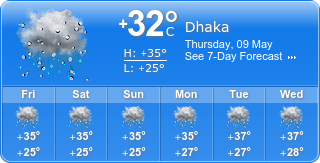Indonesia takes majority stake in massive Grasberg mine
The Grasberg complex in remote Papua is one of the world's biggest gold and copper mines
Jakarta (AFP) - Indonesia on Friday finalised a $3.8 billion deal with US mining giant Freeport-McMoRan to take a 51 percent stake in the giant Grasberg mine, the president said.
The announcement finally brings an end to a fierce standoff between Freeport and the government over rights to one of the world’s biggest gold and copper mines.
Indonesian state-owned mining firm Inalum will get the majority interest in the Grasberg mine, from just under 10 percent now, the company said in a statement.
Ten percent of the Inalum stake will go to the Papua regional government.
Indonesian President Joko Widodo, who pushed for Freeport to relinquish control of its Papuan mining operations, said the deal means more tax and royalties revenue for the government.
“Today is also a historical moment, Freeport has operated in Indonesia since 1973,” he said in a televised statement.
“We will use the majority ownership for the people’s prosperity.”
The agreement means Freeport will cede its ownership stake but will keep operating the huge complex in the jungles of Indonesia’s Papua province until 2041.
Freeport CEO Richard Adkerson said the deal provided much needed security for the company.
The announcement comes after nearly two years of see-saw negotiations about the future of Freeport’s operations in the Southeast Asian nation.
The mine has fuelled resentment over how much locals benefit from the region's resources
The company and Indonesia’s government have sparred over the ownership structure of Grasberg and its social and environmental impact, including how the firm manages mine waste known as tailings.
Freeport and other foreign firms operating in Indonesia have been ordered to comply with new mining ownership rules designed to give the country more control of its plentiful resources.
The mine is a frequent flashpoint in Papua’s struggle for independence from Indonesia and has fuelled resentment over how much locals benefit from the region’s resources.
Papua, on the western half of New Guinea island, has been the scene of a simmering independence insurgency since it was annexed by Jakarta in the late 1960s.
Jakarta (AFP) - Indonesia on Friday finalised a $3.8 billion deal with US mining giant Freeport-McMoRan to take a 51 percent stake in the giant Grasberg mine, the president said.
The announcement finally brings an end to a fierce standoff between Freeport and the government over rights to one of the world’s biggest gold and copper mines.
Indonesian state-owned mining firm Inalum will get the majority interest in the Grasberg mine, from just under 10 percent now, the company said in a statement.
Ten percent of the Inalum stake will go to the Papua regional government.
Indonesian President Joko Widodo, who pushed for Freeport to relinquish control of its Papuan mining operations, said the deal means more tax and royalties revenue for the government.
“Today is also a historical moment, Freeport has operated in Indonesia since 1973,” he said in a televised statement.
“We will use the majority ownership for the people’s prosperity.”
The agreement means Freeport will cede its ownership stake but will keep operating the huge complex in the jungles of Indonesia’s Papua province until 2041.
Freeport CEO Richard Adkerson said the deal provided much needed security for the company.
The announcement comes after nearly two years of see-saw negotiations about the future of Freeport’s operations in the Southeast Asian nation.
The mine has fuelled resentment over how much locals benefit from the region's resources
The company and Indonesia’s government have sparred over the ownership structure of Grasberg and its social and environmental impact, including how the firm manages mine waste known as tailings.
Freeport and other foreign firms operating in Indonesia have been ordered to comply with new mining ownership rules designed to give the country more control of its plentiful resources.
The mine is a frequent flashpoint in Papua’s struggle for independence from Indonesia and has fuelled resentment over how much locals benefit from the region’s resources.
Papua, on the western half of New Guinea island, has been the scene of a simmering independence insurgency since it was annexed by Jakarta in the late 1960s.









No comments